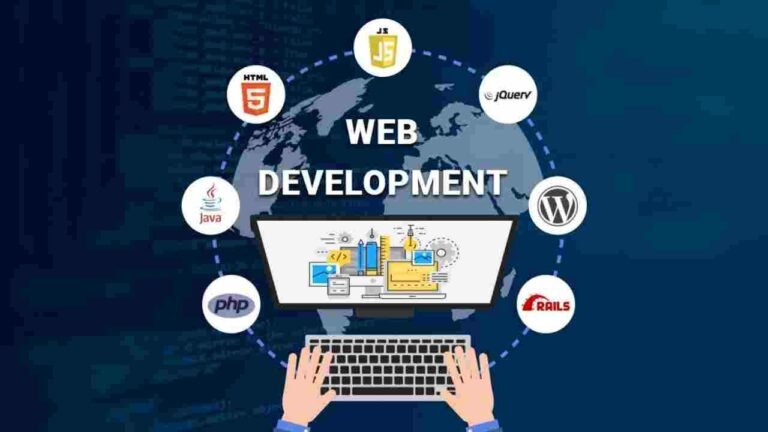In today’s digital age, having a website for your business is not just a luxury—it’s a necessity. Whether you’re launching a small personal brand or expanding a large business, choosing the right web development platform is critical to ensuring your website is functional, secure, and scalable. With so many options available, the process of selecting the best platform for your business needs can be overwhelming.
This guide will help you navigate the process of choosing the right web development platform by focusing on key factors such as budget, scalability, customization, and ease of use. By understanding your business goals and the features you need, you’ll be able to make an informed decision that best suits your requirements.
1. Understand Your Business Needs
Before you start evaluating different web development platforms, it’s essential to first define the specific needs of your business. What are you looking to achieve with your website? Understanding your business objectives will guide your decision-making process. Here are some questions to help you get started:
- Purpose of the Website: Is your website going to be a simple brochure or a full-fledged e-commerce store?
- Target Audience: Who will be using your website? Is it primarily for local customers or is it meant to cater to a global audience?
- Scalability: Will your website need to grow in the future with additional features or pages?
- Budget: What’s your budget for building and maintaining the website?
Answering these questions will help narrow down your options and provide clarity on the type of platform that best aligns with your goals.
2. Types of Web Development Platforms
There are three main types of web development platforms to choose from. Each has its own set of advantages, so understanding the differences will help you make the right decision.
2.1. Content Management Systems (CMS)
Content Management Systems (CMS) are popular for their ease of use and flexibility, making them ideal for businesses that want a website without heavy coding. CMS platforms allow users to manage content (like blog posts, images, etc.) through a simple interface, making them easy to update and maintain.
- Examples: WordPress, Joomla, Drupal
- Best for: Blogs, business websites, portfolios, and content-driven sites.
- Pros:
- Easy to use with no coding required.
- Large selection of themes and plugins for customization.
- Wide community support and tutorials.
- Cons:
- May require regular maintenance (security updates, plugin compatibility).
- Performance can be slower if not optimized properly.
2.2. Website Builders
Website builders are designed for users with little to no technical experience. These platforms are often drag-and-drop, meaning you can create a professional-looking website without having to touch any code. They provide everything you need to design and launch a website, often including hosting and domain registration.
- Examples: Wix, Squarespace, Weebly
- Best for: Small businesses, personal websites, portfolios, and startups.
- Pros:
- Simple and intuitive to use.
- Pre-built templates for easy customization.
- Integrated hosting and domain options.
- Cons:
- Less flexibility in design and features compared to CMS or custom-built websites.
- Limited scalability as your business grows.
2. Custom Web Development (Hand-coded websites)
Custom web development is the process of building a website from scratch using coding languages such as HTML, CSS, JavaScript, and backend technologies like PHP, Python, or Ruby. This option provides maximum flexibility and control over design and functionality but requires a significant investment in time and resources.
- Best for: Large-scale websites, web applications, and businesses that require custom features.
- Pros:
- Full control over design and functionality.
- Highly scalable and flexible.
- Tailored specifically to your business needs.
- Cons:
- Expensive and time-consuming.
- Requires technical expertise or hiring a professional developer.
- Maintenance can be more challenging without a CMS.
3. Key Factors to Consider When Choosing a Web Development Platform
Now that you have an understanding of the different types of platforms, let’s take a closer look at the key factors you should consider when choosing the best web development platform for your business.
3.1. Budget and Cost of Ownership
One of the most important factors to consider when choosing a web development platform is your budget. While some platforms are free or low-cost, others require significant investment, especially custom-built websites.
- CMS Platforms: WordPress and other CMS platforms offer free versions, but you may need to pay for premium themes, plugins, hosting, and a domain name.
- Website Builders: Website builders like Wix and Squarespace have subscription-based models, with plans ranging from $10 to $50 per month depending on the features you need.
- Custom Development: Custom web development is the most expensive option, requiring payments for developers, designers, and long-term maintenance.
Consider the total cost of ownership (including hosting, domain fees, and maintenance) and choose a platform that fits within your budget.
3.2. Ease of Use
For businesses that don’t have in-house web developers, ease of use is a key consideration. Platforms like website builders and CMS offer user-friendly interfaces with intuitive tools for designing and updating your website.
- For beginners: Website builders (Wix, Squarespace) are excellent for simple, easy-to-build websites.
- For flexibility: CMS platforms like WordPress provide a balance of ease of use and customization, but they may have a steeper learning curve than website builders.
- For full control: Custom development offers complete control, but it requires coding knowledge or hiring a professional developer.
3.3. Customization and Flexibility
Your website should reflect your business’s unique identity, and this means having customization options that allow you to modify the design and functionality.
- Website Builders: Offer pre-designed templates, but customization can be limited compared to CMS or custom development.
- CMS Platforms: Offer a high degree of customization through themes, plugins, and code (if you have technical skills).
- Custom Development: Offers unlimited customization but at a higher cost.
If your business requires unique features, such as a booking system, e-commerce functionality, or a custom design, a CMS or custom-built website may be the better option.
3.4. Scalability and Growth
Consider how your website will grow as your business expands. If you expect your business to scale, choose a platform that can grow with it.
- Website Builders: Limited scalability—ideal for smaller businesses that don’t expect significant expansion.
- CMS Platforms: Highly scalable, allowing you to add more pages, features, and even integrate third-party tools.
- Custom Development: Extremely scalable, allowing you to build a fully customized solution as your business grows.
3.5. SEO (Search Engine Optimization)
To rank high on search engines like Google, your website needs to be optimized for SEO. Most CMS platforms, like WordPress, have built-in SEO features and plugins like Yoast SEO, which help you optimize your content for search engines. Website builders also offer basic SEO features but might not be as robust.
If SEO is a critical component for your business (for example, if you rely heavily on organic search traffic), consider using a CMS platform like WordPress.
3.6. Security
Web security is vital for protecting your website from cyber threats and ensuring the safety of your visitors’ data. CMS platforms and custom-built websites can be secured with plugins and SSL certificates, but website builders often offer built-in security features that are easy to manage.
4. Popular Web Development Platforms to Consider
Here’s a quick look at some of the most popular web development platforms and their best use cases:
- WordPress: Ideal for blogs, small to medium businesses, and content-driven websites.
- Wix: Great for personal websites, portfolios, and small businesses.
- Squarespace: Perfect for creatives, photographers, and businesses looking for stunning design templates.
- Shopify: The go-to platform for e-commerce businesses looking to set up an online store.
- Custom Development (HTML/CSS/JavaScript): Best for businesses requiring full control, custom functionality, and scalability.
5. Conclusion
Choosing the best web development platform for your business needs depends on several factors, including your budget, goals, technical expertise, and the long-term scalability of your website. For those with limited technical knowledge, website builders and CMS platforms are excellent options, offering ease of use and flexibility. However, if you require highly customized features, a custom-built website might be the best solution.
By understanding your business requirements and weighing the pros and cons of different platforms, you’ll be well-equipped to make an informed decision that will help you build a successful, future-proof website.

